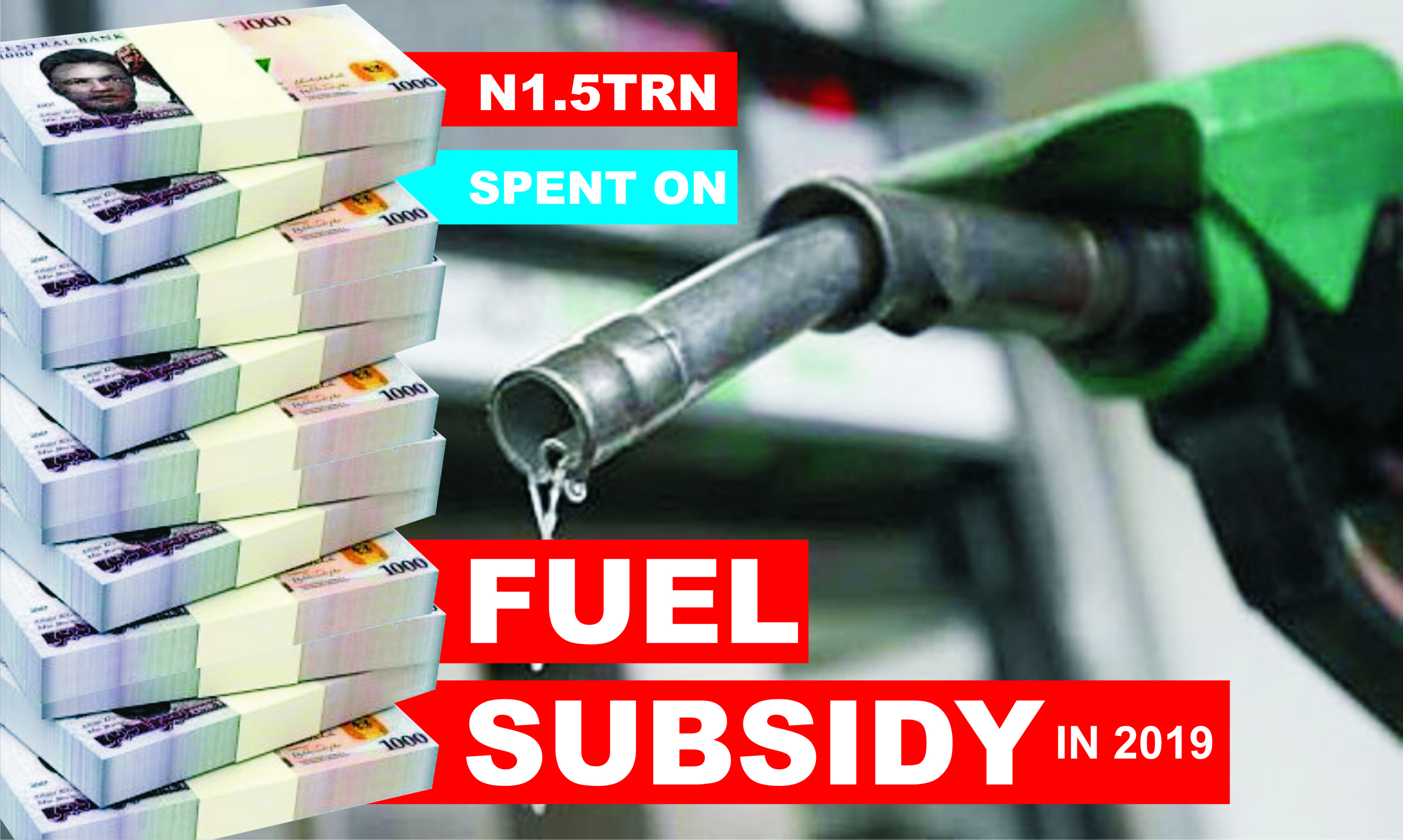Business
Subsidy Hits N1.35trn In Four Months … NNPC To Deduct N672bn

The subsidy on Premium Motor Spirit (PMS), popularly called petrol, between January and March 2022 has risen to N675.93bn, according to the latest data obtained from the Nigerian National Petroleum Company (NNPC) Limited on Wednesday.
Also, the NNPC has informed the Federation Account Allocation Committee that it will deduct or recover N671.88bn from April 2022 proceeds due for sharing at the May 2022 FAAC meeting.
It described the N671.88bn as a value shortfall incurred by the NNPC, saying that the oil firm has remained the sole importer of petrol into Nigeria and has been subsidising the commodity using billions of naira monthly.
Figures obtained by The Tide’s source from NNPC in Abuja on Wednesday showed that the oil firm spent N210.38bn, N219.78bn and N245.77bn as subsidy on petrol in January, February and March 2022 respectively.
This means that within the three-month period the oil company had spent N675.93bn on PMS subsidy. NNPC, however, described its subsidy spending as an under-recovery of PMS/value shortfall.
Meanwhile, in its presentation to FAAC during the committee’s April 26, 2022 meeting, NNPC told members of the committee that it would deduct over N671bn at their next meeting in May.
“The estimated value shortfall of N671,882,996,685.81 (consisting of N519bn for estimated April 2022 recovery plus N152bn of March 2022) is to be recovered from April 2022 proceeds due for sharing at the May 2022 FAAC meeting”, the company stated.
It further told FAAC that the overall NNPC crude oil lifting of 9.77 million barrels (export and domestic crude) in February 2022 recorded 1.71 per cent decrease relative to the 9.94 million barrels lifted in January 2022.
“Nigeria recorded 1.258million barrels per day production in February 2022 (OPEC),” NNPC stated in its presentation to FAAC.
The company noted that crude oil export revenue received in March 2022 amounted to $88.93m, as gas export revenue received in March 2022 amounted to $32.04m.
NNPC stated that for domestic crude and gas sales, the sum of N259,539,170,912.93 was the gross domestic crude oil and gas revenue for the month of March 2022.
It added that the value shortfall of N245,772,559,462.62 was charged for the month which comprises previous months’ outstanding and part of the February 2022 value shortfall.
Monetary deductions by NNPC from FAAC had continued to deplete the funds being shared at the meeting, as these deductions were due to humongous subsidy spending shouldered by the national oil company.
Business
Nigeria’s ETF correction deepens as STANBICETF30, VETGRIF30 see 50% decline in a week

Business
BOI Introduces Business Clinic

Business
Dangote signs $400 mln equipment deal with China’s XCMG to speed up refinery expansion

-
Maritime17 hours ago
Customs Declares War Against Narcotics Baron At Idiroko Border
-
Maritime17 hours ago
Nigeria To Pilot Regional Fishing Vessels Register In Gulf Of Guinea —Oyetola
-
Maritime17 hours ago
NIMASA,NAF Boost Unmanned Aerial Surveillance For Maritime Security
-
Maritime17 hours ago
NIWA Collaborates ICPC TO Strengthen Integrity, Revenue
-
City Crime14 hours ago
NCSU Hails Fubara Over 2025 New Telegraph Man Of The Year Award
-

 Sports16 hours ago
Sports16 hours agoGombe-Gara Rejects Chelle $130,000 monthly salary
-
Maritime17 hours ago
NIMASA GETS NEW MARITIME GUARD COMMANDER,ADOKI
-

 Business17 hours ago
Business17 hours agoDangote signs $400 mln equipment deal with China’s XCMG to speed up refinery expansion

